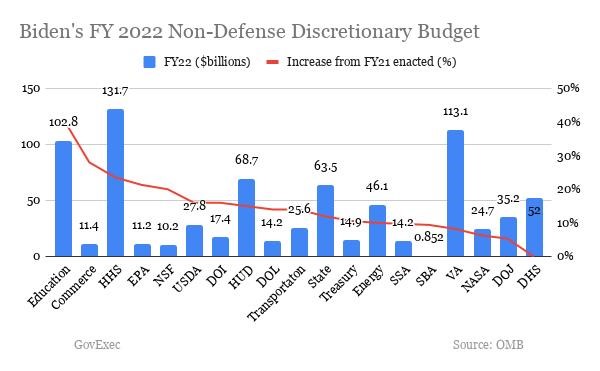The Biden administration released its proposed FY 2022 budget, which helps bring some clarity to the continued priorities of the administration. The budget reflects the administrations promise to rebuild a strong public health and community-based care system that can respond to the health challenges faced in diverse areas across the United States. Many priorities of the administration align with ANA’s advocacy focus to support nurses in areas such as workforce, behavioral health, maternal health, rural health, preparedness and safety including personal protective equipment (PPE), and research.
Below are a few highlights from the proposed budget that align with the work of ANA:
- $15.4 billion for the Centers for Disease Control and Prevention, which reflects the largest budget authority increase in nearly two decades. The funding would go to support core public health capacity improvements, modernize data collection, training for public health experts, and prepare for, and respond to emerging global threats.
- $12.6 billion for the Health Resources and Service Administration, which is $497 million above FY 2021 enacted.
- $52 billion for the National Institutes of Health (NIH), an increase of $9 billion above FY 2021 enacted. $6.5 billion of the $9 billion increase is to support the establishment of the Advanced Research Projects Agency for Health, that is intended to speed transformational innovation in health research for diseases like cancer, diabetes, and Alzheimer’s. The remaining $2.5 billion will continue the research and translation into clinical practice for some of the most urgent challenges including the opioid crisis, climate change, and gun violence. ANA continues to monitor communications and opportunities to engage with the National Institute of Nursing Research under NIH.
- An increase of $3.7 billion above FY 2021 enacted, for a total of $9.7 billion for the Substance Abuse and Mental Health Services Administration with a charge to respond to the opioid and substance use epidemic by expanding programs and targeting prevention and treatment; and increasing access to mental health services to protect the health of children and communities.
- $14.2 billion for the Department of Labor (DOL), including $665 million for the Occupational Safety and Health Administration (OSHA), $73 million above FY 2021 enacted, for increased enforcement and whistleblower protection programs. The DOL budget requests $285 million for apprenticeship programs, specifically $100 million increase for the Registered Apprentice Program. There is no additional information on the DOL industry-recognized apprenticeship programs (IRAPs), which have supported nurse training initiatives.
The Biden administration has been vocal about priorities that will transform the health care system. However, the administration’s budget is slightly more than a wish list. Ultimately it is up to Congress to fund the agencies. ANA urges the Administration and Congress to focus on rebuilding and transforming the health care system to improve on the challenges brought forth during the pandemic. Nurses have been the agents of transformative change in facilities, systems, and communities to support improved patient outcomes and advancing equity. Building on these successes, ANA will work with the agencies and administration to build on the budget priorities to continue to put nurses at the forefront of change.
ANA is also working on the Hill for legislation that will address infrastructure and access for telehealth services, PPE for the current and future public health emergencies, and workplace safety programs for nurses. ANA’s advocacy includes a multi-pronged approach to deliver what nurses need in all settings. It is clear through the first budget of this administration that health care is a top priority to improve as we transition to a post-pandemic environment.

